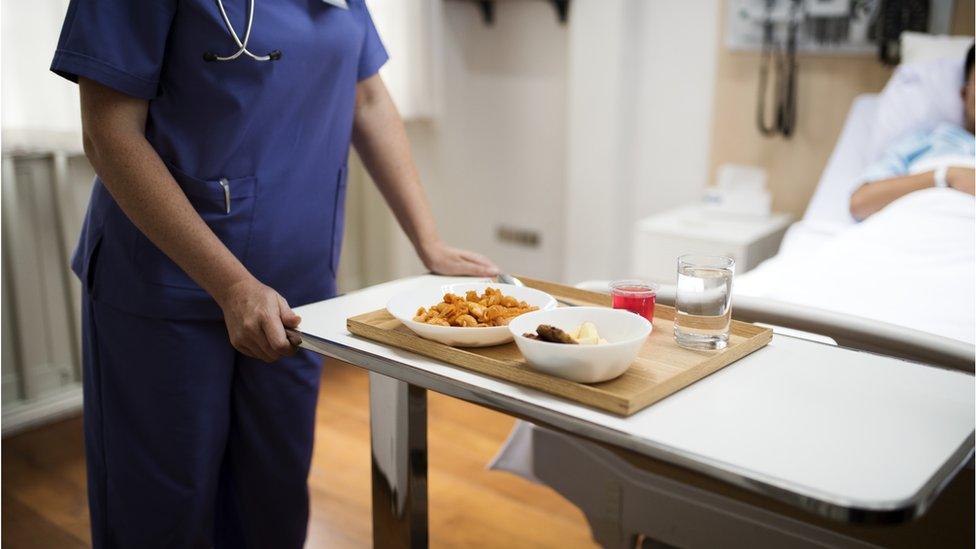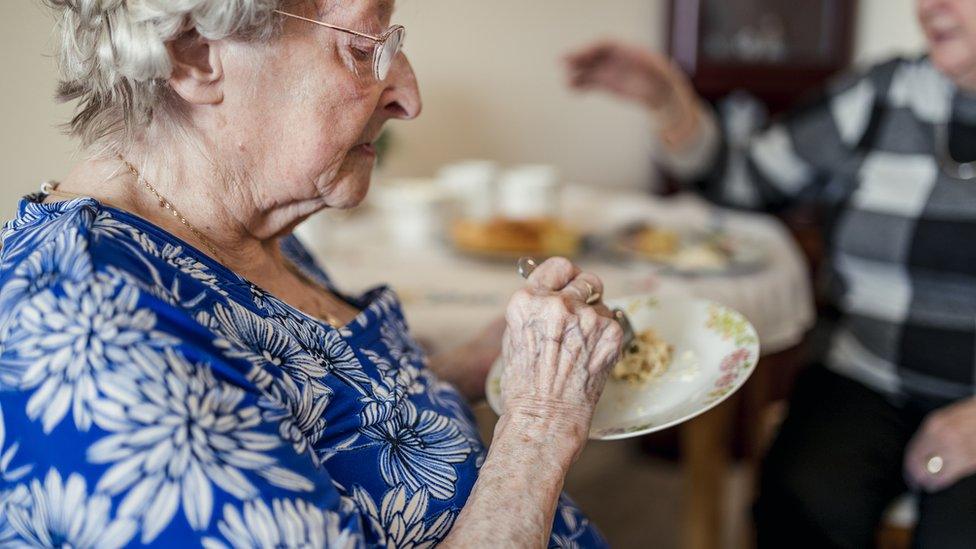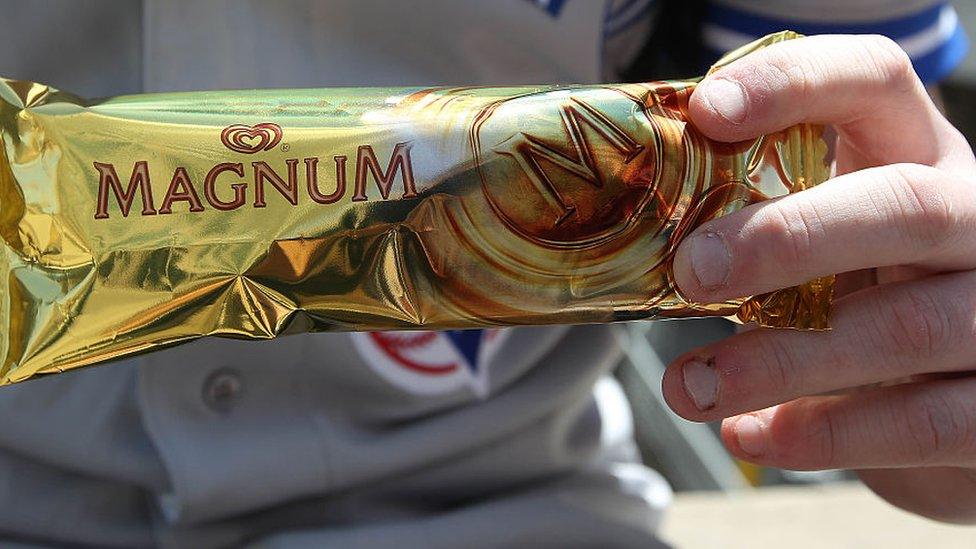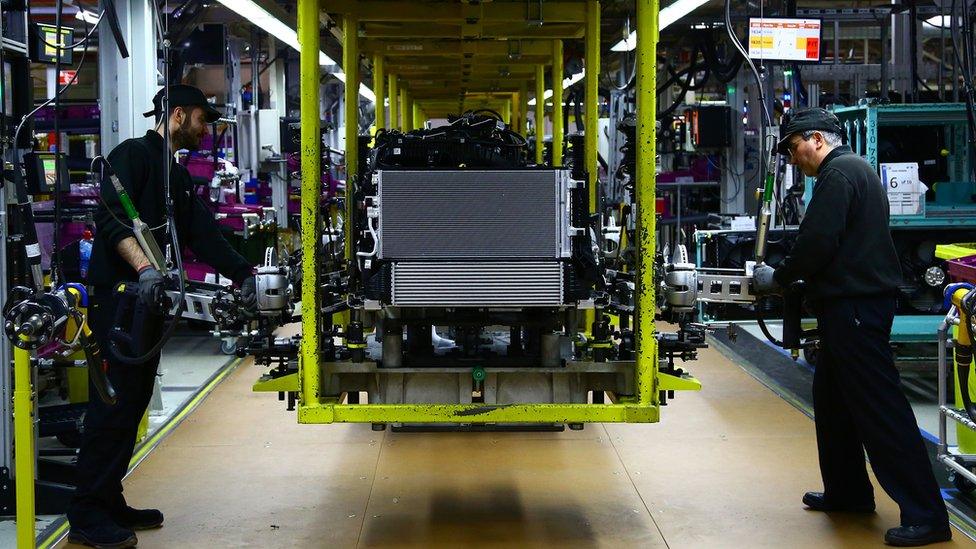Brexit: Care home and hospital caterers stockpiling food
- Published

Major suppliers to care homes and hospitals are stockpiling food to offset the potential disruption of a no-deal Brexit.
Apetito and Bidfood, who between them supply thousands of care providers, said they were holding extra inventory in case of supply chain problems.
Both said they were prepared but Apetito said it feared others were not.
"We are in a strong position," said Apetito UK boss Paul Freeston.
"But some firms would not be able to build up big stocks," like his firm, he said. "Or if they are doing fresh produce they would have to stop. A Hard Brexit could cause them significant economic difficulties."
Apetito provides pre-made meals to more than 400 hospitals and 450 care homes, as well as 100,000 vulnerable people in their homes.
Mr Freeston said it was spending £5m in building its inventory ahead of Brexit - doubling the raw materials it holds from four to eight weeks' of stock and pre-made meals from five to six weeks'.
But if the disruption lasted much longer than 12 to 16 weeks, the firm would have "very real difficulties", because it supplies specialist food for elderly people and those with critical conditions.

But if there are backlogs at UK ports in the event of a no-deal, "the quality of food could suffer and our product range would really narrow", Mr Freeston said.
The other worry is that if the UK suddenly started trading on World Trade Organisation terms with the EU, the cost of raw materials could jump - and Britain imports about a third of its food from the bloc.
The concerns are shared by Bidfood, which supplies the kitchens of 4,000 care homes and 950 hospitals across the UK, as well as schools and prisons.
Jim Gouldie, its supply chain and technical services director, said the firm had "looked carefully" at products needed by sectors with a "duty of care" and invested in additional warehousing.
Meanwhile Anglia Crown, which manufactures meals for 100 hospital sites, told the BBC it was worried about prices rising after Brexit. A spokeswoman said the company was agreeing prices for "as many commodities as possible, especially any bought in from Europe".
Are providers secure?
Despite the warnings, the National Care Association said most of the care homes it represents are prepared for any no-deal disruption and have enough food stocks in place - even if that means relying on dried or canned food to carry them through.
But boss Nadra Ahmed is worried that any price shocks to suppliers could end up being passed on to providers.
"Care providers are struggling with funding and recruitment issues already so any increases will increase the challenges they face."
The Hospital Caterers Association (HCA), which represents hospital catering companies, says most of his members have been preparing for Brexit for some time. And while he is not overly worried about a no deal, he does expect some short term volatility after Brexit.
"A number are making arrangements to increase their stock holding - either on site or by securing commitments from their long-established suppliers," he says.
"But this clearly is not possible for perishable goods. It is imperative that we ensure continuity of supply to minimise any potential disruption to patients' menus."
A government spokesperson said: "Our priority is to make sure that patients continue to receive the same high standard of care.
"We are working closely with the NHS, Defra and healthcare providers to ensure the uninterrupted supply of food and specialised nutritional products to patients, as part of our preparations for a no-deal EU Exit."
- Published31 January 2019

- Published1 February 2019
